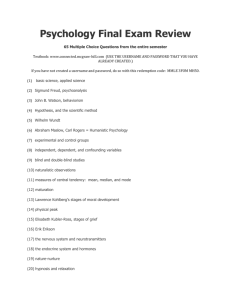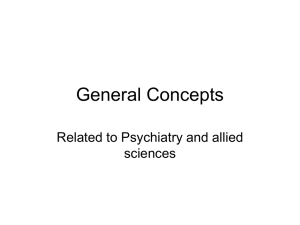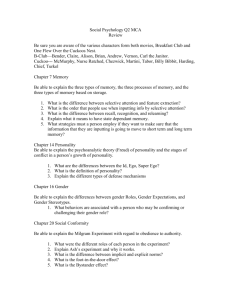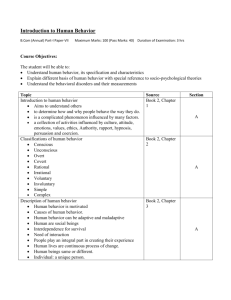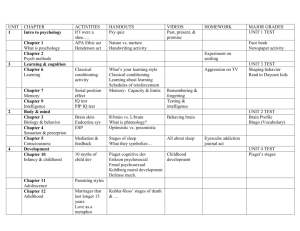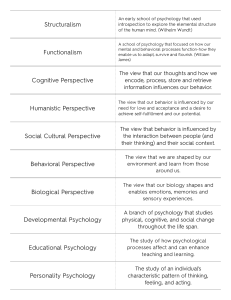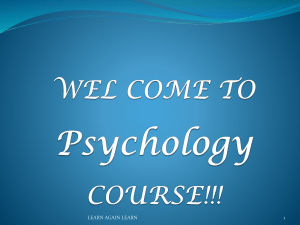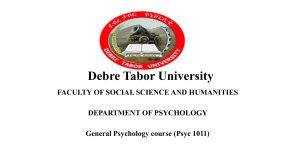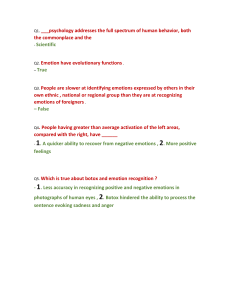Review for Final Exam - Zoo
advertisement
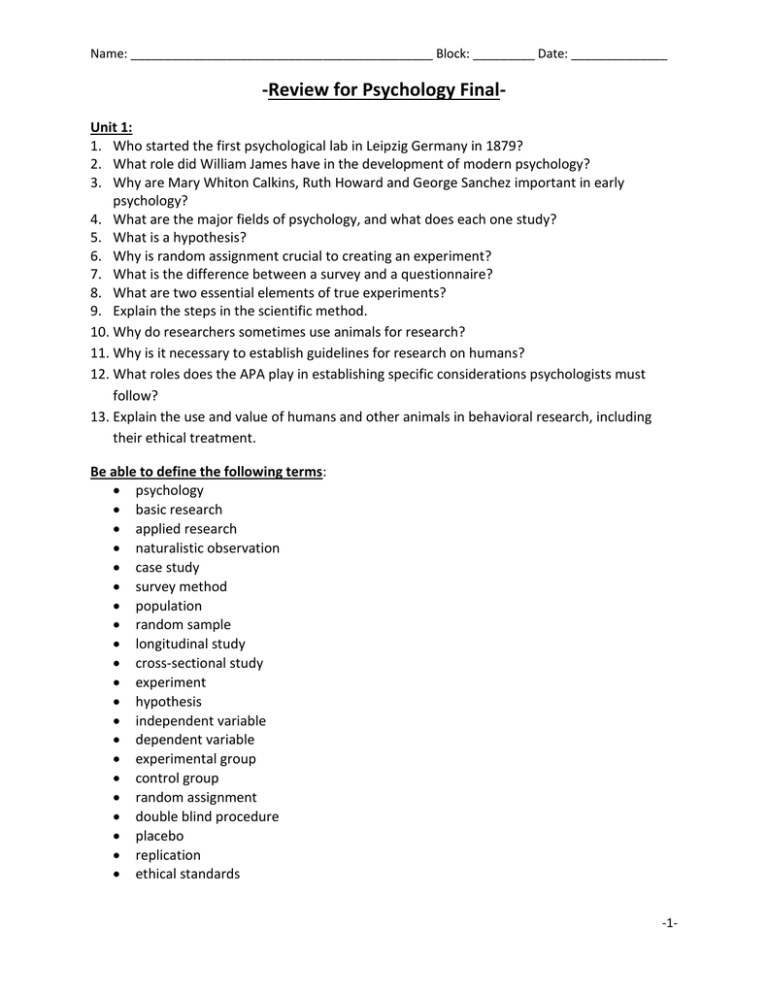
Name: ____________________________________________ Block: _________ Date: ______________ -Review for Psychology FinalUnit 1: 1. Who started the first psychological lab in Leipzig Germany in 1879? 2. What role did William James have in the development of modern psychology? 3. Why are Mary Whiton Calkins, Ruth Howard and George Sanchez important in early psychology? 4. What are the major fields of psychology, and what does each one study? 5. What is a hypothesis? 6. Why is random assignment crucial to creating an experiment? 7. What is the difference between a survey and a questionnaire? 8. What are two essential elements of true experiments? 9. Explain the steps in the scientific method. 10. Why do researchers sometimes use animals for research? 11. Why is it necessary to establish guidelines for research on humans? 12. What roles does the APA play in establishing specific considerations psychologists must follow? 13. Explain the use and value of humans and other animals in behavioral research, including their ethical treatment. Be able to define the following terms: psychology basic research applied research naturalistic observation case study survey method population random sample longitudinal study cross-sectional study experiment hypothesis independent variable dependent variable experimental group control group random assignment double blind procedure placebo replication ethical standards -1- Unit 2: 1. What are the primary parts of a typical neuron and the function of each? (Be able to illustrate/identify the different parts) 2. What impact do neurotransmitters and drugs have on human behavior? 3. Explain how neural information is transmitted. 4. How did Phineas Gage’s accident change the treatment of mentally ill people later? 5. What would happen if the two halves of your brain were separated down the middle of the corpus callosum? Could you still function and come across as a normal person? 6. What is brain plasticity? 7. Explain how plasticity is the brain’s capacity for modification following damage (especially in children). Be able to define the following terms: neuron dendrite nucleus soma/cell body axon axon terminal/branches myelin sheath action potential refractory period resting potential all-or-nothing principle synapse neurotransmitters sympathetic nervous system parasympathetic nervous system plasticity frontal lobe corpus callosum Unit 3: 1. Who were the significant contributors and contributions to current understandings to the study of classical, operant conditioning? 2. How did the study of Baby Albert demonstrate the manipulation of emotions? 3. What are the effects of reinforcement and punishment on behavior? 4. Describe the principles and processes involved in both classical conditioning and operant conditioning. 5. Explain the advantages and disadvantages of reinforcement and punishment on behavior. -2- Be able to define the following terms: learning classical conditioning stimulus response unconditioned response (UCR) unconditioned stimulus (UCS) conditioned response (CR) conditioned stimulus (CS) extinction spontaneous recovery generalization discrimination Unit 4: 1. What role do the id, ego and super ego play in Freud’s theory of personality? 2. What is the definition of self-actualization? 3. How do psychologists attempt to assess personality? 4. Describe the psychoanalytic perspective on personality as defined by Sigmund Freud. 5. Identify important contributors and their theories of personality. 6. Distinguish between objective and projective techniques in personality assessment. Be able to define the following terms: personality psychoanalysis free association preconscious unconscious id ego superego defense mechanisms psychosexual stages inferiority complex projective tests Thematic Apperception Test (TAT) Rorschach inkblot test self-actualization unconditional positive regard -3-

